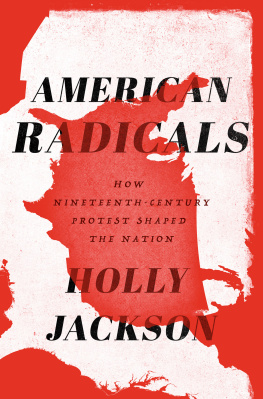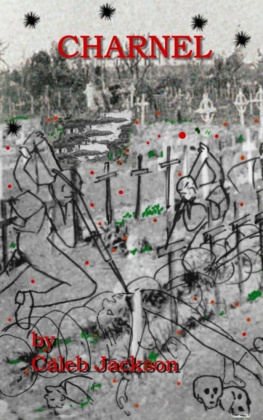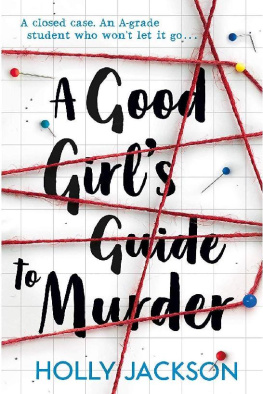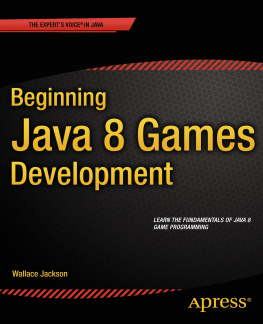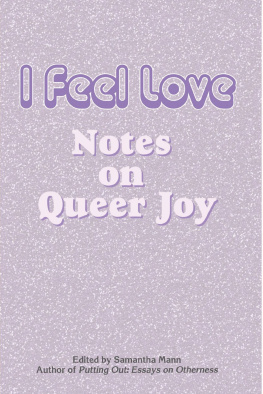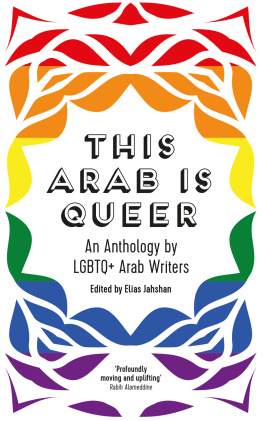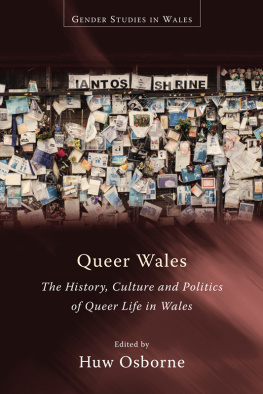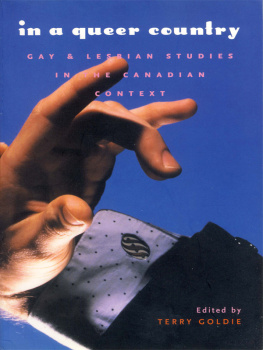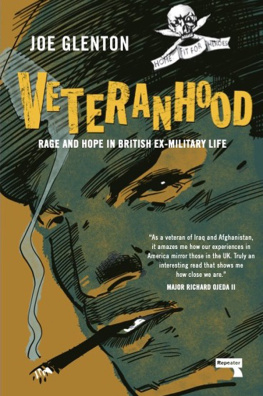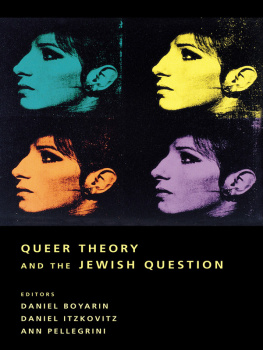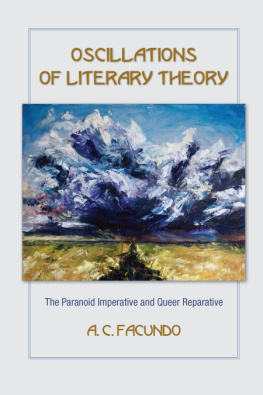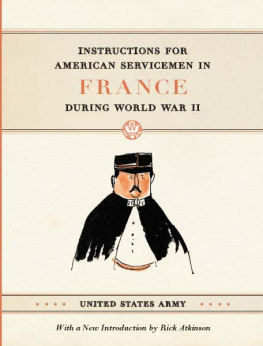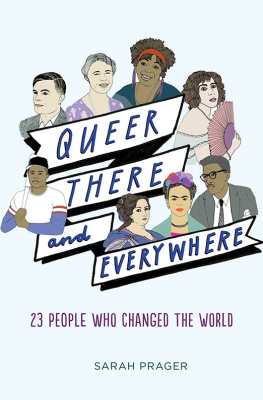ONE OF THE BOYS
ONE OF THE BOYS
Homosexuality in the Military during World War II
PAUL JACKSON
Second Edition

McGill-Queens University Press 2010
ISBN 978-0-7735-3714-9
Legal deposit first quarter 2010
Bibliothque nationale du Qubec
Printed in Canada on acid-free paper that is 100% ancient
forest free (100% post-consumer recycled), processed chlorine free.
First edition published 2004
This book was first published with the help of a grant from the Canadian
Federation for the Humanities and Social Sciences, through the Aid to Scholarly
Publications Programme, using funds provided by the Social Sciences and
Humanities Research Council of Canada.
McGill-Queens University Press acknowledges the support of the Canada
Council for the Arts for our publishing program. We also acknowledge the
financial support of the Government of Canada through the Book Publishing
Industry Development Program (bpidp) for our publishing activities.
National Library of Canada Cataloguing in Publication
Jackson, Paul, 1955
One of the boys : homosexuality in the military during World War II/
Paul Jackson. 2 ed.
Includes bibliographical references and index.
ISBN 978-0-7735-3714-9
1. Canada Armed Forces History World War, 1939-1945. 2. Canada
Armed Forces Gays History 20th century. 3. Canada Armed Forces
Gays Government policy History 20th century. 4. Gay men Canada
History 20th century. I. Title.
D768.15.j32 2010 355.08664097109044 c2004-902206-7
This book was typeset by Dynagram inc. in 10/13 Sabon.
Dedicated to my parents,
Norm and Joan Jackson
CONTENTS
ACKNOWLEDGMENTS
The following bodies provided financial assistance for this work: School of Graduate Studies, Queens University; the Social Sciences and Humanities Research Council of Canada; and the Ministry of Training, Colleges and Universities of Ontario. I also relied on loans and gifts from my parents, Norm and Joan Jackson, my sister Lynda Jackson Kennedy, and Rick Hirtle. I am forever thankful for their kindness and support.
At the National Archives, Paul Marsden and Andrew Horrall made the work possible by helping to find lost microfilm reels and then making them available to me as conveniently as possible. I was fortunate to work with Alena Dufault, unfailingly efficient, helpful and intelligent, at the Access to Information and Privacy Department. Also, I warmly thank all of the veterans who took time to help me understand their war. Those experiences were enriching both academically and personally.
I was fortunate to have Karen Dubinsky and Allan English as co-supervisors of the doctoral thesis upon which this book is based. Both influenced the final text by asking tough questions of the work in progress from their distinct fields of expertise and then patiently waiting as I muddled my way to answers. The thesis then benefited from the insights of Jeff Keshen, Marc Epprecht, Elsbeth Heaman, and Sarah Hill. Eric Darier looked over the revised manuscript before Judith Turnbull edited it, with real insight, for McGill-Queens University Press. Steven Maynard introduced me to the works of Grant Macdonald at the Marine Museum of the Great Lakes. Im grateful. Finally, Joan McGilvray offered uncommon insights in helping to get my preface to this edition to print. Its always humbling and helpful to find out that your editor knows what youre trying to say better than you do.
PREFACE TO THE SECOND EDITION
I spent five years at the turn of this century researching and writing One of the Boys, a history of homosexuality in the Canadian military during the Second World War. Library and Archives Canada in Ottawa (at that time the National Archives and referred to in the notes as na) houses the majority of the records upon which I relied. Of equal importance were dozens of interviews, often open-ended conversations that lasted for years, with veterans of the war. In this preface, I want to reflect upon the significance of this work in light of events that have overtaken the world since 11 September 2001. I will discuss how my interactions with na personnel may be understood in terms of continuities and discontinuities in the history of sexuality and then consider how sexuality and gender are central to the promotion of Canadas current war in Afghanistan in ways that are continuous with the Second World War. For instance, the simplistic heterocentric world imagined by promoters of the war such as Don Cherry masks layers of unknowns that should call into question the war in Afghanistan as well as Canadas fundamental orientation in the world. Conscientious Canadians need to reconsider their relationship with figures and symbols of authority.
In looking at the relationship Canadians have with authority, the most immediate example is Canadas place in the American empire.
These reflections are particularly relevant for people who feel frustrated and helpless in the face of power that is hidden from view. How does one act morally when it is unclear who is determining the overall strategy and for what purpose? How might decent people transcend the daily compromises that keep them bound to the interests of reclusive, unethical powers? In the introduction to the first edition, I comment on the possibilities created by the attacks of 9/11. A vein had been opened in the centre of the empire and a vast majority wanted it sutured quickly. Now, as increasing numbers reject the war on terror as a permanent feature of life, as Afghan and Iraqi peoples confront fundamentalist oppressors, local warlords, and their imperial sponsors, others question the cogency of the official conspiracy theory regarding the 9/11 terrorist attacks, proposed by the American administration and supported by the mainstream media. In this preface, I want to look at how my experiences researching sexuality and gender in Canadian history provide insights into Canadas entry into the global war on terror.
Back in 1998, the first few months of research for this book were not promising. As there was no mention of homosexuality in any of the finding aids for Military Record Group 24, there was little to do but survey files dealing with Medical Services, policing, and administration in the hope that some research methodology would suggest itself. The Armys Routine Orders periodically listed a serviceman convicted of conduct to the prejudice of good order and military discipline or an officer charged with scandalous behaviour unbecoming an officer. Curiously, those charges sometimes omitted the particulars: they left unstated the conduct or behaviour that was prejudicial and unbecoming. At D-History at the Department of National Defence (dnd), I found the naval equivalent of these charges in
The morality that grounded these offences had been successfully challenged since the Second World War. In a historical moment of lucidity in the mid-1960s, a number of homosexual people refused to accept the notion that they were immoral or perverted. They decided to claim and proclaim their distinctness. Thus the ethics of gay liberation was established. However, we need to understand the ethics of discretion that was being displaced. Before the gay liberation movement, it was the moral obligation of homosexual people to be discreet. As the court-martial and police records make clear, allowing your homosexuality to be known could expose all those within your social circle to potential ruin. Discretion was not necessarily motivated by crass self-preservation; it was also a matter of social conscience. With gay liberation, the logic was reversed; now everyone needed to expose themselves voluntarily in order that the greatest number might be protected. Such actions could never stop discrimination but they could change the form discrimination would take. A minority would now be able to openly protect itself. Both ethical models are based on solidarity everyone must be either in or out of the closet. The documents that I needed to access were created within the regime that made the closet an ethical necessity. I was intending to bring them out of the dark corners of the archival closets in order to make them serve the new ethical order. Merely doing this research challenged the system under which they had been created and archived. So looking at how the documents became available for analysis is as much a part of history as the analysis of the documents.
Next page



